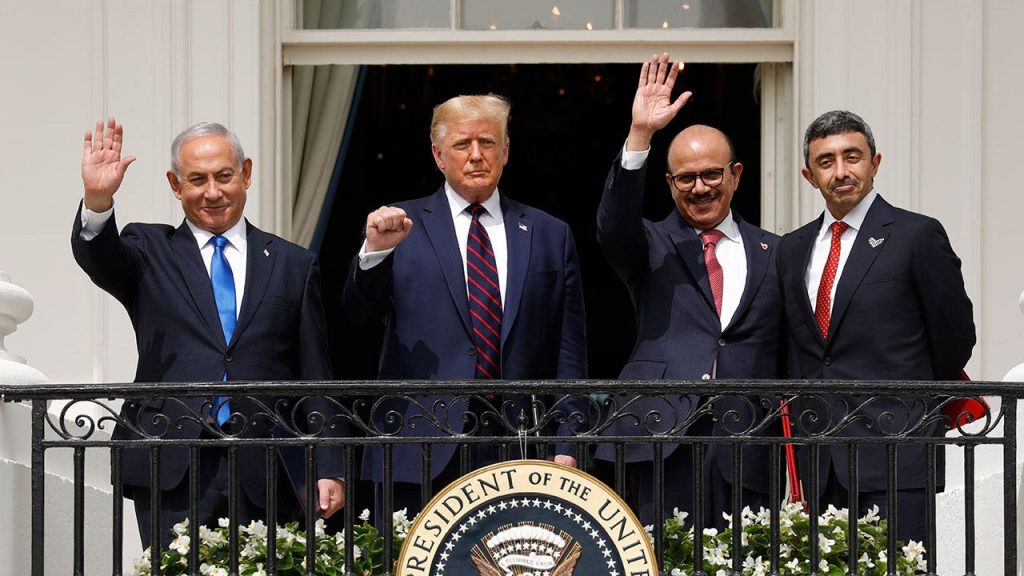Listen to the article
Kazakhstan is expected to become the newest member of the Abraham Accords, U.S. officials confirmed Thursday, expanding the landmark Middle East peace initiative that has reshaped regional diplomacy since its inception in 2020.
The Central Asian nation will join the United Arab Emirates, Bahrain, and Morocco as formal signatories to the agreements, which established normalized diplomatic relations with Israel under the Trump administration’s mediation. U.S. Special Envoy to the Middle East Steve Witkoff revealed the development during his remarks at the America Business Forum in Miami, indicating he would return to Washington to announce the addition officially.
“This is going to show that the Abraham Accords is a club that many countries want to be a member of and it will be a step for turning the page on the war in Gaza and moving forward toward more peace and cooperation in the region,” a U.S. official told Axios.
Kazakhstan’s President Kassym-Jomart Tokayev is expected to make the formal announcement during an upcoming meeting with President Donald Trump, though specific timing details remain unclear. The move represents a significant diplomatic expansion of the accords beyond their original Middle Eastern focus.
The Abraham Accords, first signed at the White House in September 2020, marked a historic shift in regional dynamics by establishing formal diplomatic, economic, and security ties between Israel and several Arab nations. The agreements bypassed the traditional precondition of resolving the Israeli-Palestinian conflict before normalization could occur.
Sudan initially signed a declaration of intent to join the accords in January 2021, but internal political instability has prevented the formalization of diplomatic relations with Israel. The country has experienced significant unrest, including a military coup and ongoing conflict, which has complicated its diplomatic initiatives.
President Trump has recently signaled that more nations may soon join the framework. Syria and Saudi Arabia appear to be at the forefront of new diplomatic efforts, with Syrian interim President Ahmed al-Sharaa scheduled to meet with Trump at the White House next week. Saudi Arabia’s Crown Prince Mohammed bin-Salman is expected to follow with a White House visit on November 18.
The potential addition of Saudi Arabia would represent a landmark achievement for the accords, given the kingdom’s significant religious, political, and economic influence in the Muslim world. Riyadh has historically maintained that normalization with Israel would require substantial progress on Palestinian statehood, though recent diplomatic signals suggest evolving positions.
Kazakhstan’s inclusion would mark the first Central Asian nation to join the accords, potentially opening new economic and strategic partnerships in the region. As a predominantly Muslim country with established diplomatic ties to Israel since 1992, Kazakhstan has long maintained balanced relations across the Middle East.
The expansion comes at a critical juncture in Middle Eastern affairs, as the region continues to navigate tensions following recent conflicts in Gaza. Proponents of the accords view the expanding diplomatic framework as essential for building regional stability, while critics argue it sidelines Palestinian concerns.
For the Trump administration, which returns to power in January after winning the November election, expanding the Abraham Accords represents a continuation of a signature foreign policy initiative from the previous term. The administration views the normalization agreements as a transformative approach to Middle Eastern peace that circumvents decades of diplomatic deadlock.
Economic cooperation has been a central element of existing Abraham Accords relationships, with significant growth in trade, tourism, and investment between Israel and signatory nations since 2020. Kazakhstan’s inclusion could potentially expand these networks into Central Asia’s energy and transportation sectors.
The formal announcement from Washington is expected in the coming days, potentially marking the first major diplomatic achievement of Trump’s transition period before his January inauguration.
Fact Checker
Verify the accuracy of this article using The Disinformation Commission analysis and real-time sources.




10 Comments
The expansion of the Abraham Accords to include Kazakhstan is an intriguing development. It will be important to understand the strategic considerations behind this decision and how it might shape regional dynamics going forward. Cautious optimism is warranted, but the long-term effects are still uncertain.
That’s a fair assessment. The details and motivations behind Kazakhstan’s decision will be key to understanding the broader significance of this move.
The expansion of the Abraham Accords is notable, as it demonstrates the growing appeal of these diplomatic agreements. Kazakhstan’s inclusion signifies the continued momentum behind the initiative, though the long-term implications remain to be seen.
Yes, it will be crucial to understand Kazakhstan’s motivations and how this might impact existing regional dynamics and alignments.
This is an interesting development. Kazakhstan joining the Abraham Accords could help promote regional stability and economic cooperation in Central Asia. It will be important to monitor how this unfolds and impacts geopolitics in the area.
Agreed. Kazakhstan’s participation could be a positive step towards improving relations between Israel and its neighbors in the region.
Kazakhstan’s decision to join the Abraham Accords raises some interesting questions. While it could open up new economic and diplomatic opportunities, there may also be domestic political considerations at play. It will be worth following how this develops.
That’s a fair point. Domestic factors within Kazakhstan will likely play a role in how this move is received and implemented.
This announcement comes at a pivotal time, with tensions in the Middle East and Central Asia remaining high. Kazakhstan’s participation in the Abraham Accords could help facilitate dialogue and cooperation in the region, though the ultimate impact remains to be seen.
Absolutely. The geopolitical implications of this move will be crucial to monitor, as it could have ripple effects across the wider region.